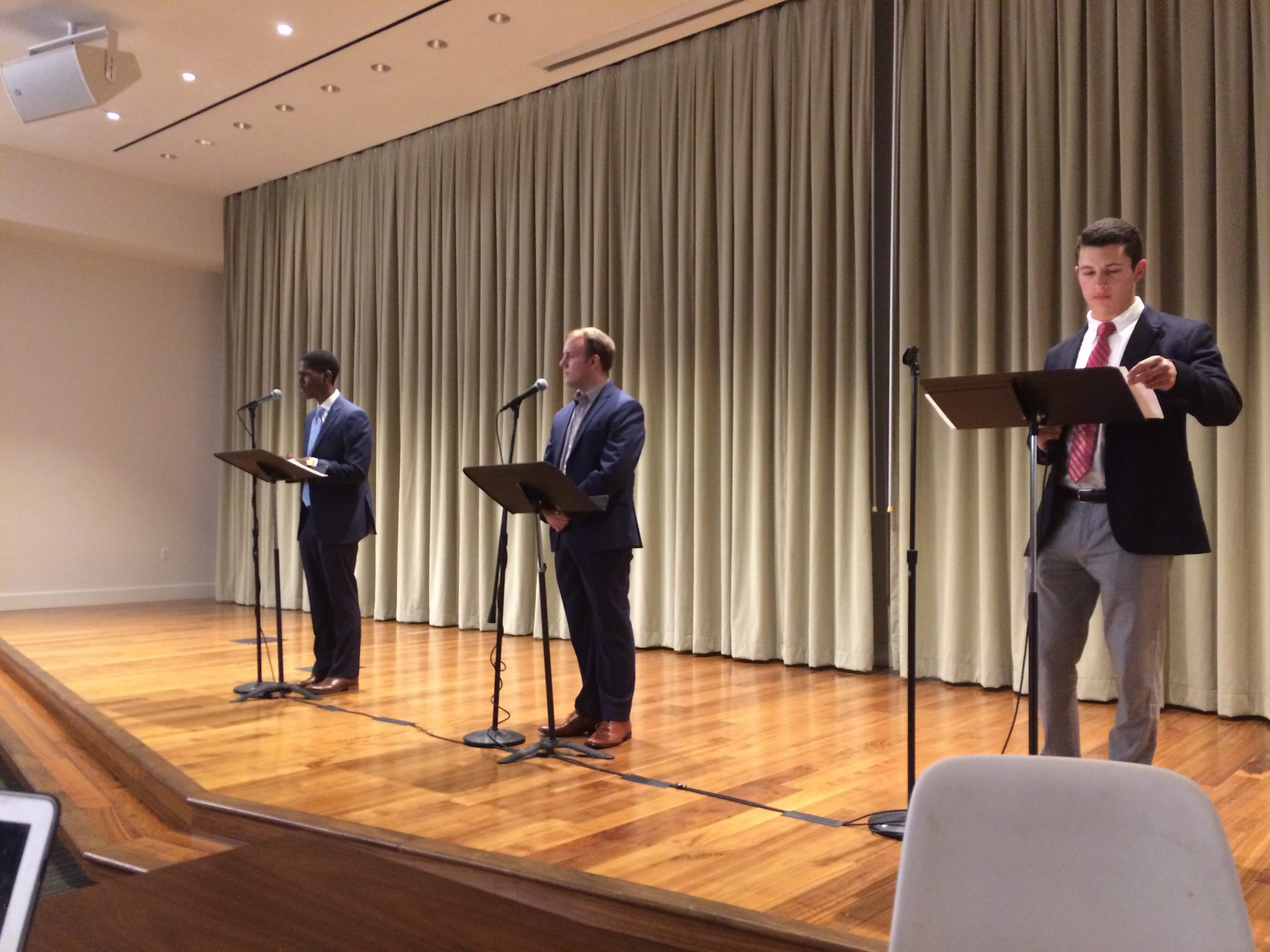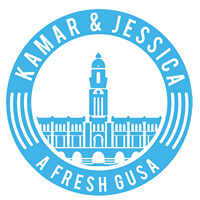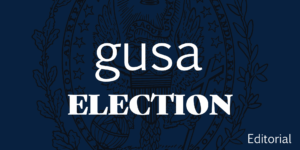On Monday, Feb. 20, three GUSA presidential candidates discussed why they would be the best nominee to mitigate rising tuition and improve health care services on campus, while reforming the student government to increase engagement and transparency at the GUSA presidential debate. The event was held in HFSC in front of an audience of about 70 students.
The debate, organized by the GUSA Election Commission, was held three days before the election and featured three of four official GUSA candidates for the top spot in the executive: Kamar Mack (COL ‘19), Garet Williams (COL ‘18), and John Matthews (COL ‘18). Jenny Franke (COL ‘18) of the Franke-McGuire ticket did not attend.
Every candidate’s opening statements included a claim that their ticket would overhaul the current apathy of students towards GUSA and make the body more transparent.
“This is a referendum on the GUSA status quo,” said Matthews, the only candidate on stage who had never been a part of GUSA. “People are fed up with GUSA’s ineffectiveness and failure to create meaningful change.”
Both Williams and Mack have served in the GUSA executive branch, but claimed an outside perspective based on their years outside of GUSA and involvement in other campus groups.
The debaters also focused on college affordability and laid out their plans to mitigate the rising cost of tuition. While arguing that GUSA needs to intercede for students with administrators in order to lower tuition, Williams also said to be cautious regarding the impact the student government could have in decreasing rates. Mack and Matthews outlined specific areas where they thought the university could reduce its costs.
“We want to push for the university to be more brutal in its budgeting process,” said Mack. “Essentially what that means is taking every single university department and reevaluating the budget on a year-by-year basis.”
Matthews suggested cutting university funding for SNAPS or making the neighborhood pay for the program in order to lower costs for students.
After the opening statements, campus media groups, members of the GUSA Financial Appropriations Committee, and audience members asked a range of questions from Georgetown’s sexual assault climate survey to the status of the university as a sanctuary campus for undocumented students.
On the issue of undocumented students and the recent travel ban put in place by President Trump’s Executive Order, candidates agreed that all students should be supported and protected on campus, but differed in exactly what form that support should take.
“What GUSA needs to do is to get the stakeholders involved, the people who are affected by these decisions in the room,” said Williams. “On the issue of the sanctuary campus, there’s a discussion on whether or not that’s a good idea because it puts a target on students’ back while we’re in Trump’s backyard.”
Mack said that GUSA should engage with its Federal Relations team to lobby for the BRIDGE Act, which would give temporary protection by the federal government to undocumented youth, on Capitol Hill, while Matthews commented that he would publicize the university’s webpage for undocumented students more heavily.
The most heated exchange of the night came when Enushe Khan (MSB ‘17), the current GUSA president, took three minutes to outline the policies on the candidate’s platforms that her administration had already worked on or looked at. These included extended hours at the Student Health Center— part of the Mack-Andino campaign’s pledge to make student health more accessible— the impossibility of ending the three-year housing requirement based on the university’s Campus Plan— promised by the Matthews-Matz campaign— and the introduction of a racial climate survey— called for by the Williams-Ali campaign.
“What is one of your policy changes that has not already been worked on, is not already being worked on or is not impossible?” asked Khan, receiving a round of applause from the audience.
Matthews responded that he felt the question had been targeted directly towards his campaign, and said that the average student could not name more than two things that GUSA had done to impact students’ lives. Williams said that his unique idea was a residential house for students, similar to national houses like Red House, to discuss issues of college access and affordability. Mack’s response focused on targeted student health updates outside of extended hours, like digital check-in kiosks at the Student Center.
The debate lasted for an hour-and-a-half, with every candidate calling for a more inclusive and effective GUSA. Candidates all advocated for a GUSA that responded to students’ voices, rather than an insular body that only listened to its own members. Yet, each ticket promises different strategies, different reforms, and different perspectives.
“At the end of the day, when we’re voting, it comes down to one thing: Who do you want to tell the administration, to tell the neighborhood, that we’re no longer going to go bend over backwards for them?” said Matthews.
Students can vote for their next GUSA executives on Thursday, Feb. 23.



